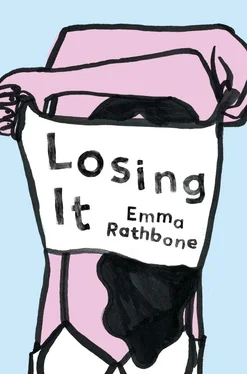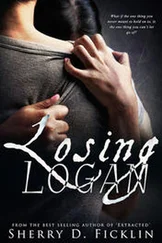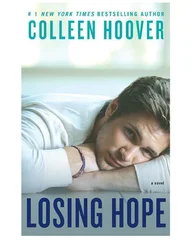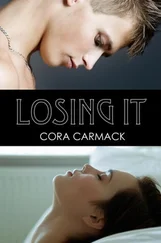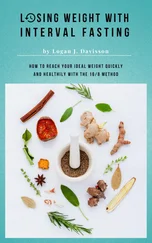“I left my sunglasses at his store this morning,” I said, too cheerfully, “and I told him to bring them by. I thought he could join us and…” I trailed off.
By the time he arrived at our table, cleanly shaven, wearing a button-down shirt sprinkled with rain, it had dawned on her what was going on and she looked cornered, stricken.
“Gordon,” she said blankly.
“Hi!” I said. “Join us.”
He moved into a chair next to Viv.
Viv was completely still and barely acknowledged him when he sat down. She seemed to be focusing on her hand, which sat like an inanimate object on the table. We all stared at it for a moment. There was something parasitic and almost goblin-like about Gordon now, like he’d affixed himself to the side of our night.
“Thank you, thank you so much,” I said loudly. “For bringing me my sunglasses.”
“Of course,” said Gordon, producing them from a plastic bag.
I wanted to rewind, erase, go back. To save Viv from having to do anything, I started talking quickly about some of the things I’d seen in Gordon’s store, trying to engage him so she could get her bearings. At the very least, she could just endure through dinner and then I could apologize or maybe we wouldn’t have to talk about it and the whole thing could just get swallowed by the summer.
“I’ve never seen such cool vintage sports posters,” I said. “They used to really do things differently, you know? What’s that one? That you have in the window?”
“French Open, 1923,” said Gordon. “That’s a designer named Lee Steeple. Dead now, of course. Those are pretty hard to get.”
Someone in the corner of the restaurant popped a bottle of champagne.
By now Gordon had sensed something was wrong, and we were both animatedly ignoring silent Viv, pretending to have a buoyant conversation and stealing looks at her. Our waiter came and dropped off our appetizers. Gordon didn’t order anything.
“He had a terrible drinking problem,” Gordon said. “He designed a poster, at the end of his life, his most famous one — for the Spassky-Fischer tournament of 1972. With the chess pieces made to look like mountains? Maybe you’ve seen it?”
I shook my head.
“But, no, it was the drinking,” said Gordon.
“Right, right.”
“The First World War. He saw too much, they say.” I felt terrible for Gordon, for the position I’d put him in. It was like watching someone on a unicycle — him trying to get through this conversation.
“Jeez, yeah,” I said. “What a war. What a war.”
Viv’s eyes flashed to me with a complicated mix of amusement and resentment. She was starting to listen to us.
“I mean, I don’t even know why that war happened,” I said. “I think I remember learning about it, but nothing stuck. It’s like Austria-Hungary, Prussia, what ? It’s like a bar of soap that slips out of my hand, when I think about it.” I took a gulp of my wine. “Not that I think about the start of World War One in the shower that much, ha-ha.” I felt myself go red.
“Balance of powers,” said Viv. We both looked at her. She was haughtily playing with the edge of her cloth napkin.
Gordon saw his opening. “Is that so?” He leaned in a little. “I always thought it was the rivalry between England and Germany.”
“That’s what I mean,” she said. Then, directly to Gordon, “That’s one thread. But now they’re saying there’s no one culprit. It was more like a broth, of patriotism, fear, swashbuckling empires, everyone thought through their own moral arithmetic they were in the right.”
Viv kept talking, and by the time she got to Archduke Ferdinand, she was starting to get into her element. She was talking in the kind of bossy but charming way she used with her friends, basking in our attention, benevolently parceling out eye contact. Gordon was listening, wrapped up in it. “And the more you look into it, the more you ask ‘how’ not ‘why,’ and the more specifics you get, the more you realize you’re back where you started, that there is no overriding logic,” she said. He peppered her with questions. The waiter came and went. We had dinner. Gordon ordered a glass of wine. Little by little, Viv unwound.
“I wish I could have been there, on the eve of that war,” he said at one point. “To know what the air was like.”
“Me too,” said Viv. “To get that sense of the gears turning, what was really happening.”
“It reminds me of that line from Macbeth ,” said Gordon.
“That’s my favorite one!” she said. “Which line?” She touched her ear again. Some hair was coming out from where it was tied back. She looked at Gordon generously. I could see her taking stock, pleased, warming to the idea of the night. Maybe I was right. Maybe this was all they needed. I could picture myself leaving in a little while, letting them take it from here.
“‘I am so far stepped in blood,’” he quoted.
“No, no,” interrupted Viv, laughing. “It’s ‘I am in blood stepped in so far.’”
“No it’s not,” he said, also laughing. “I am so far stepped in blood, that—”
“You’re wrong.” She vigorously shook her head. “It is, and I quote…” Her cheeks were red and her whole being was billowing, proud as a flag. She said, in a loud, oratorical voice: “‘I am in blood stepped in so far, that should I wade no more, returning were as tedious as go o’er.’” At the last word, she did a flourish with her hand and knocked over a glass of wine.
Seeing the effect all of this had on Gordon — how he retreated, almost imperceptibly — was like watching a sports play in slow motion, a football grazing someone’s fingertips, the awed pain of a near miss. Her red hair fizzed down her shoulders, her face flared. She was like a storm. And the way she’d fixed on this thing, it was too much for him, too intense. He scratched the back of his head. “Yeah, you’re probably right,” he said. He looked around evasively. He yawned and leaned back.
Viv held for a moment, her eyes sparkling, waiting for him to give her the right reaction. But he had left her out there on the field, alone.
Confused, disoriented, she drew back, and looked around quickly.
I wanted to slap him, to shake him, to throw water in his face. Why couldn’t he just meet her there, at that register, either because he was having as much fun or just to be nice?
It seemed that the restaurant had become completely quiet. Viv started quickly dabbing at the circle of red wine on the tablecloth. I did, too, trying to help.
“O’er?” I said, trying to smile brightly. “What does that mean? Is that a word? Is that a Shakespeare word?”
“Over there,” she said, not looking up. “Or in this context, over.”
We continued. The night continued. We all tried to make conversation. To the outside eye, nothing appeared to be different. Gordon, I think he felt bad, straightened himself out and tried to talk to Viv more, but his motions now had the feel of a forced courtliness. Eventually, in the corner of the restaurant, a band started playing, and we watched them, not really talking, each of us uneasy in our own way. Had it all really deflated? Or was I just imagining it? It contributed to the feeling I’d been having all summer: a lack of proportion, a loss of a sense of scale. I couldn’t tell anymore what was a big deal and what didn’t mean anything.
We left Gordon at the front of the restaurant and drove home together. Viv had been perfectly pleasant to him when we said goodbye, but now she was quiet. The rain had stopped but the sky was dark with cloud cover. She stared out at the side of the road. We drove in silence. I opened the window and let in the thick, knitted air of late summer. I wanted to apologize, but I felt that it would acknowledge everything I had done, everything that had happened — how she hadn’t even wanted to be drawn in but had gamely stepped up to the plate, only to be rejected by someone she wasn’t even interested in. I didn’t want to admit that I had been the cause of any of that, and maybe the narrative to stick to was just that it was a pleasant, if sometimes strained, night with an acquaintance. So I glanced over at her and didn’t say anything. When we got home, she said, “Thank you, that was very nice,” in a tight way, and went up to bed. Soon after, I went up, too.
Читать дальше
Конец ознакомительного отрывка
Купить книгу
